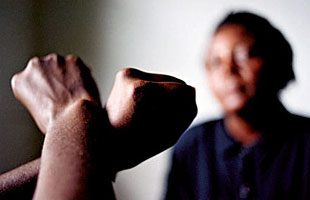Many people hear the term ‘Gender Based Violence’ but are they aware of the Laws that govern the safety of individuals on a world scale and also within Papua New Guinea?
Acts of Gender Based Violence breach human rights. These, among others, include;
- The right to life, liberty and security of person
- The right to the highest attainable standard of physical and mental health
- The right to freedom from torture or cruel, inhuman or degrading treatment.
- The right to freedom of opinion and expression, to education, to social security and to personal development
There are many laws that govern our countries but in the recent times great measures have been taken to protect the livelihood of women around the world and in Papua New Guinea.
International and Regional Agreements which focus on Gender Based Violence include:
- Convention on the Elimination of All Discrimination Against Women (CEDAW) was adopted by United General Assembly in 1979 and by 2004, CEDAW was rectified by 179 countries including Papua New Guinea. CEDAW requires governments to implement policies to eliminated discrimination against women and achieve equality, and makes special mention of the need to abolish all discriminatory laws and customs.
- Millennium Development Goals (2000) – Now known as Sustainable Development Goals which encompasses 17 goals. Number five; Achieve gender equality and empower all women and girls by 2030.
- The Pacific Leaders Gender Equality Declaration (2012)
- Pacific Regional Action Plan on Women, Peace and Security (2012-2015)
These agreements are of recent engagements where people have identified that Gender Based Violence, specifically violence against women and children is an on-going concern.
Child protection refers to the protection of children from violence, exploitation, abuse and neglect. Article 19 of the UN Convention on the Rights of the Child provides for the protection of children in and out of the home.
Child protection systems are a set of usually government-run services designed to protect children and young people who are underage and to encourage family stability. While there is no universally agreed upon definition, UNICEF defines a ‘child protection system’ as:
the set of laws, policies, regulations and services needed across all social sectors – especially social welfare, education, health, security and justice – to support prevention and response to protection-related risks.
These systems are part of social protection, and extend beyond it. At the level of prevention, their aim includes supporting and strengthening families to reduce social exclusion, and to lower the risk of separation, violence and exploitation.
There are laws made in PNG that help to eradicate some of these violence, exploitation and abuse.
Laws in PNG
Under the Family Protection Act, domestic violence is an offence. Domestic Violence occurs when someone does one of the following to a family member: Assault (whether physical or otherwise), Psychological abuse, harassment or intimidation, Stalking, Offensive or indecent behaviour, Damage to property
Under the Family Protection Act, an applicant may apply for two different types of orders, which are civil orders (not criminal orders):
- An Interim Protection Order
- A Protection Order
Lukautim Pikinini Act (2013) and (2015)
Elimination of child labour, protection of children and young person. It was also created to make more awareness on child protection and the various forms of child abuse.
Moreover, the policy will provide standards to establish a safe environment for children.
If you’re experiencing any form of violence or that of people you know it is important to know your Human Rights and it is your right to get help. There are many services to which you can seek help, whether you’re a woman or a child here you can go through Equal Playing Field for more information or some referral pathways;
Family and Sexual Violence Unit (FVSU) for Abusive and Rape Incidents
Deals with criminal cases; sexual abuse and domestic violence.
Family and Sexual Violence Unit Locations
Boroko, Badili and Waigani (Transportation for survivors are often provided)
Boroko
SENIOR Constable Ms Julianne Epe
Ph. 344229/000 Mobile. 71527644
Constable C.Soni
Phone: 3244317
Waigani
Stg. Peter Aimm
Mobile – 70344899 Phone:3244301
Badili
First Constable Mary Thomas
Mobile: 76150177 Phone: 3217088
Police Stations Front Desk
Gordans Police Station – 3251823
Six Mile Police Station – 3251402
Gerehu Police Station – 3260255
Human Trafficking
Toll Free: 71007777
Deals with cases of Trafficking in Persons (TIP) and peoples smuggling.
1 TOK KAUNSELIN
Mobile: 71508000 (Toll Free)
Toll-free confidential Phone Counselling service providing information and support for Family experiencing sexual violence in PNG
Family Support Centre
Medical and Psychological Service – provide free medical treatment for ALL survivors for Family and Sexual Violence and Child Abuse.
There are 5 Important Services:
Medical First Aid
Psychological First Aid
Medicine to prevent HIV infection and prevent or treat other sexually transmitted infections (STIs)(within 72 hours)
Vaccinations to prevent Hepatitis B or Tetanus.
Emergency contraception to prevent unwanted pregnancies as a result of rape (within 120hours)
3 Mile (opposite POM GEN)
Tessie Soi
Mobile: 71687557
On Call: 70945283
Phone: 3248246
Port Moresby – City Mission Headquarters Koki (Shelter & Counselling)
Houses, feeds and offers spiritual direction to trouble young men on the streets of Port Moresby
Women and Children crisis centre that shelters, protects and provides counselling and medical help to women and children who are survivors of domestic violence.
Dorothy Koch
Admin Manager
Phone: 3200606/3200166
Mobile: 7030085/71471518
Email: citymissionpom@online.net.pg
Lifeline PNG
Provide refuge centre and phone counselling for survivor of domestic violence
Mary
Phone: 326111/326001



1 comment
Thank you so much for sharing this important piece of information to empower our womenfolk away from violence and abuse.